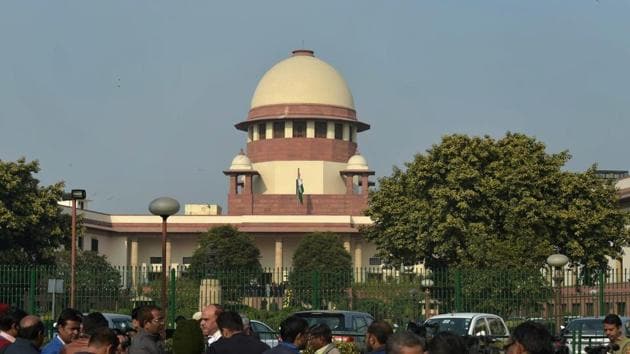SC/ST Act: Centre files review petition, says data shows weak execution of law, not its misuse
The Centre also sought an open hearing of its review petition, saying it was necessary for the court to hear their oral arguments.
The government expressed strong disagreement with the Supreme Court on its March 20 verdict reading of the law to prevent atrocities against Dalits and tribals and filed a review petition against its dilution, at least three ministers said on Monday.

Law minister Ravi Shankar Prasad said the top court should have formally made the government a party in the case while it was only “allowed to make some oral submissions”.
The court, Prasad added, should have looked at actual criminal case data to come to the conclusion that it was being misused.
“With great respect, the government differs with the reasoning given by the SC judgement, virtually redoing the entire architecture of the Scheduled Castes and Scheduled Tribes (Prohibition of Atrocities) Act 1989,” Prasad said.
The SC banned automatic arrests and registration of criminal cases under the law meant to protect the marginalised communities from abuse and discrimination.
A bench of Justices AK Goel and UU Lalit ruled that no arrests can be made under the act without prior permission. It also held that a court can grant a pre-bail arrest (anticipatory bail) if it, prima facie, finds the complaint is an abuse of the
law, false, motivated and intended to blackmail or harass a person.
This was necessary, the bench said, to prevent the “rampant misuse of the tough provisions of the law.”
Right now, the Act bars a court from granting anticipatory bail to a person accused of an offence under the Act. On receiving a complaint, the police are bound to immediately register a First Information Report (FIR) and arrest the accused. A convicted person under the Act faces between six months in prison to capital punishment.
“We feel a serious case of this nature required a more in- depth consideration of objective data to come to a conclusion whether the law is being abused or there is need to give continued protection due to unfortunate instances against Dalits,” Prasad added, giving the government’s view.
The government’s counsel Attorney General KK Venugopal will argue before the SC on Tuesday that the right to frame a law is the exclusive domain of the legislature, a top functionary familiar with the matter said on condition of anonymity. “The SC can only read down a law that violates fundamental rights, lacks in legislative competence or is arbitrary. Once that is not the case, then it is left to the legislature.”
While the SC based its judgement on the misuse of the law, government data shows conviction under the said Act is below 25 per cent; the government is expected to say this in court on Tuesday.
The government counsel will also argue that the Constitution abolishes untouchability in all forms under Article 17.
“You can’t focus on Article 21 (which says ‘No person shall be deprived of his life or personal liberty except according to procedure established by law) to
the detriment of Article 17,” a senior official dealing with the matter said, asking not to be identified.
The current government had in 2015, brought amendments to the act to increase the ambit what counts as atrocities under the law to include actions such as tonsuring the head, shaving of a victim’s moustache, or denying access to water.
A senior official in the social justice and empowerment ministry said the ministry has petitioned the court that it has a right to be heard and defend the provisions of the act that was drafted by it to ensure justice to victims.
“We were not even aware of the case that was filed based on which the March 20 SC judgement came. The additional solicitor general was not there as representative of the ministry.
If court has observed that the alleged perpetrators have the right to justice, then so do the victims,” the official said, quoting the ministry’s response.
The ministry has also pointed out that if the filing an FIR becomes difficult, delivery of justice to the victim and payment of compensation as necessitated by the Act will also be hampered. “If there is no FIR, there will be no compensation.”
Union minister for Social Justice, Thawar Chand Gehlot denied that his ministry took too long to file the review petition and said the Narendra Modi-led NDA government will ensure that all constitutional provisions to safeguard the rights of Dalits are adhered to.
Get Current Updates on India News, Election 2024, RBI MPC Meet Live Updates, along with Latest News and Top Headlines from India and around the world.



